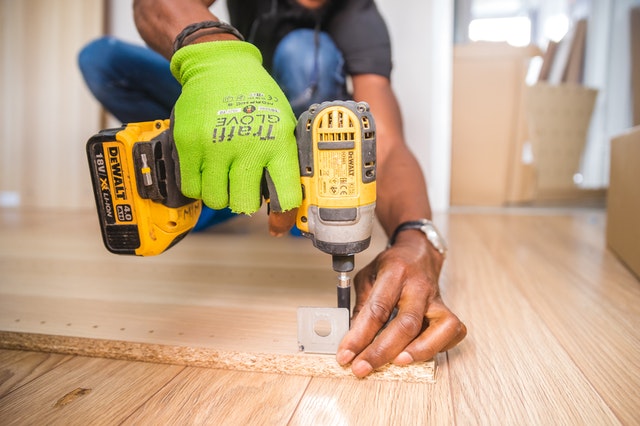 Owning a pool is a dream for many homeowners, offering a perfect spot for exercise, relaxation, and fun with family and friends. However, it’s essential to understand the costs associated with maintaining a pool before diving into ownership. Pool maintenance is crucial for keeping your water clean, safe, and enjoyable throughout the season. Here’s a breakdown of what you can expect when it comes to pool maintenance costs.
Owning a pool is a dream for many homeowners, offering a perfect spot for exercise, relaxation, and fun with family and friends. However, it’s essential to understand the costs associated with maintaining a pool before diving into ownership. Pool maintenance is crucial for keeping your water clean, safe, and enjoyable throughout the season. Here’s a breakdown of what you can expect when it comes to pool maintenance costs.
Pool Types and Maintenance Costs
Different pool types require varying levels of care, which influences the cost. Whether you have an in-ground or above-ground pool, saltwater or chlorinated, the maintenance expenses can vary significantly.
In-Ground Pools:
These pools typically cost more to maintain. Expect to spend between $60 to $95 per hour for professional maintenance, and an additional $300 to $800 annually for the necessary chemicals. If your pool is made of concrete, you’ll need to budget for extra chemicals and cleaning to prevent algae buildup, making it a bit pricier compared to fiberglass pools.
Above-Ground Pools:
While above-ground pools are generally cheaper to install, their maintenance costs are similar to in-ground pools. However, since above-ground pools are often smaller, you might save on maintenance costs.
Saltwater vs. Chlorinated Pools:
Saltwater pools, while more expensive to install, are cheaper to maintain. You’ll spend around $100 annually on salt and chemicals, but remember that the salt cell needs replacing every three to five years, costing between $200 and $700. Chlorinated pools, on the other hand, require more regular chemical balancing, adding to the cost.
DIY vs. Professional Maintenance
If you prefer the hands-on approach, DIY pool maintenance can save money. Regular tasks include cleaning, balancing chemicals, and ensuring proper water circulation. However, hiring a professional at least once a season is recommended to catch any issues that might be overlooked during DIY maintenance.
Hidden Costs in Pool Maintenance
Beyond the basics, several hidden costs can catch homeowners off guard:
- Insurance:
Pools can increase your homeowner’s insurance premiums due to the added risk, and you may need additional liability coverage. - Utilities:
Heating your pool can add $100 to $600 per month to your energy bills, depending on the method used. - Lighting:
Replacing pool lights can cost between $20 and $625, depending on whether you’re replacing a bulb or an entire fixture. - Leaks:
Repairs for leaks, whether in-ground structural cracks or above-ground liner tears, can be expensive. - Filter Replacements:
Pool filters need regular replacement, typically every one to two years, depending on pool usage.
Before investing in a pool, it’s essential to budget for these maintenance costs to keep your backyard oasis in top shape. Whether you’re planning to build a new pool or purchase a home with an existing one, understanding these expenses will help you enjoy your pool without financial stress.
 Navigating the real estate market can be a complex journey, especially with the variety of terms and statuses you encounter during your search for the perfect home. One such term that often confuses homebuyers is “sale pending.” What does it mean when a property is listed as “sale pending,” and how should you approach these listings? Let’s break it down.
Navigating the real estate market can be a complex journey, especially with the variety of terms and statuses you encounter during your search for the perfect home. One such term that often confuses homebuyers is “sale pending.” What does it mean when a property is listed as “sale pending,” and how should you approach these listings? Let’s break it down. Join us as we navigate through the common queries that may emerge throughout your mortgage journey. Remember, your quest for homeownership should be illuminated with comprehension and direction. Let’s discuss the primary 4 mortgage inquiries and decode the secrets to unlocking the gateway to your ideal home.
Join us as we navigate through the common queries that may emerge throughout your mortgage journey. Remember, your quest for homeownership should be illuminated with comprehension and direction. Let’s discuss the primary 4 mortgage inquiries and decode the secrets to unlocking the gateway to your ideal home. Foreclosed properties can be diamonds in the rough for savvy homebuyers and investors alike. These distressed properties often come at discounted prices, presenting an opportunity to snag a great deal. However, navigating the process of buying a foreclosed property can be tricky and requires careful consideration. To help you make the most of this opportunity, here are some insider tips to keep in mind:
Foreclosed properties can be diamonds in the rough for savvy homebuyers and investors alike. These distressed properties often come at discounted prices, presenting an opportunity to snag a great deal. However, navigating the process of buying a foreclosed property can be tricky and requires careful consideration. To help you make the most of this opportunity, here are some insider tips to keep in mind: When it comes to home improvements, you might envision lengthy renovation projects or a significant investment of time and money. Not all home improvements have to be big projects. There are many quick and simple changes you can make to transform your space without breaking the bank or disrupting your daily routine.
When it comes to home improvements, you might envision lengthy renovation projects or a significant investment of time and money. Not all home improvements have to be big projects. There are many quick and simple changes you can make to transform your space without breaking the bank or disrupting your daily routine. If you want to buy a home in the near future, you are probably aware of just how competitive the housing market is. You need to put yourself in the best position possible to be successful by getting pre-approved for a home loan. This is a very important step, particularly when you compete against people making cash offers. Learn more about the importance of getting pre-approved below, and make sure your offer is taken seriously.
If you want to buy a home in the near future, you are probably aware of just how competitive the housing market is. You need to put yourself in the best position possible to be successful by getting pre-approved for a home loan. This is a very important step, particularly when you compete against people making cash offers. Learn more about the importance of getting pre-approved below, and make sure your offer is taken seriously. During the past year, the housing market has been on fire. There are not a lot of houses for sale, many people are interested in moving, and there is a rising demand from the people who put off moving during the coronavirus pandemic. Furthermore, Millennial demand is picking up, which will only make the housing market even hotter. Recently, a survey found that approximately two-thirds of people who qualify for Generation Y are thinking about buying a home in the near future. Many of them have improving financial circumstances, and they are looking for a way to build wealth and settle down.
During the past year, the housing market has been on fire. There are not a lot of houses for sale, many people are interested in moving, and there is a rising demand from the people who put off moving during the coronavirus pandemic. Furthermore, Millennial demand is picking up, which will only make the housing market even hotter. Recently, a survey found that approximately two-thirds of people who qualify for Generation Y are thinking about buying a home in the near future. Many of them have improving financial circumstances, and they are looking for a way to build wealth and settle down.  If you own a home, you must make sure it is properly protected. Hazards can change throughout the year, and one of the biggest threats during the spring is the arrival of frequent thunderstorms. If your home is damaged by a severe storm, it might be covered by your homeowner’s insurance policy. You need to take a closer look at your policy to see if you have the right coverage.
If you own a home, you must make sure it is properly protected. Hazards can change throughout the year, and one of the biggest threats during the spring is the arrival of frequent thunderstorms. If your home is damaged by a severe storm, it might be covered by your homeowner’s insurance policy. You need to take a closer look at your policy to see if you have the right coverage. It is critical for everyone to find a home that is right for them. Given the current lack of inventory, this can be a significant challenge. Fortunately, the National Association of Realtors (NAR) keeps track of numerous market aspects, including how long the average family stays in a home. For the past few decades, the average family has stayed in their home for approximately six years; however, during the past few years, that average has gone up to nine years. This means that the average homeowner is keeping his or her house longer than he or she did in the past. Why is this happening?
It is critical for everyone to find a home that is right for them. Given the current lack of inventory, this can be a significant challenge. Fortunately, the National Association of Realtors (NAR) keeps track of numerous market aspects, including how long the average family stays in a home. For the past few decades, the average family has stayed in their home for approximately six years; however, during the past few years, that average has gone up to nine years. This means that the average homeowner is keeping his or her house longer than he or she did in the past. Why is this happening? The idea of buying a home is challenging enough as the process requires a lengthy approval validation, paperwork, financing, and the actual move with logistics. However, when one really looks at what typically occurs with relocation, buying versus renting can start to make more sense over time.
The idea of buying a home is challenging enough as the process requires a lengthy approval validation, paperwork, financing, and the actual move with logistics. However, when one really looks at what typically occurs with relocation, buying versus renting can start to make more sense over time.